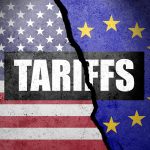U.S. and Russian officials have held discussions over potential energy deals during recent Ukraine peace talks, according to multiple sources familiar with the negotiations. The proposals, which included American companies re-entering Russian projects and easing restrictions on energy equipment, were floated as incentives to encourage Moscow toward a peace settlement and to prompt Washington to relax sanctions.
Energy Proposals on the Table
Among the ideas discussed was the possibility of Exxon Mobil rejoining Russia’s Sakhalin-1 oil and gas project, which the company exited in 2022 following sanctions over the invasion of Ukraine. Officials also considered allowing Russia to purchase U.S. equipment for its liquefied natural gas ventures, including the Arctic LNG 2 project, currently under Western restrictions. Another proposal previously reported involved the U.S. buying nuclear-powered icebreaker vessels from Russia.
Talks in Moscow and Washington
The discussions took place during U.S. envoy Steve Witkoff’s visit to Moscow earlier this month, where he met Russian President Vladimir Putin and investment envoy Kirill Dmitriev. Sources also indicated that the proposals were later reviewed within the White House, including with President Donald Trump. At the Alaska summit on August 15, the White House reportedly sought to announce a headline investment deal as part of its diplomatic push. A U.S. official said the administration continues to seek a bilateral path to end the war, though declined to comment on specific negotiations.
Strategic and Political Implications
The talks coincided with Trump’s threats of new sanctions on Russia if peace talks stall, alongside tariffs on India, a key buyer of Russian oil. While Brussels has moved to phase out Russian gas imports by 2027, Washington’s bilateral discussions suggest a shift away from EU-led efforts. Putin also signed a decree in August potentially reopening the door for foreign investors, including Exxon Mobil, to regain stakes in Sakhalin-1 — but only if they work toward lifting Western sanctions. Exxon previously wrote off $4.6 billion when it exited Russia and had its 30% operator stake seized by the Kremlin.
The quiet discussions highlight the complex intersection of energy, sanctions, and diplomacy in ongoing efforts to end the war in Ukraine. While no deals have been finalized, the willingness to explore U.S.-Russia energy cooperation underscores the transactional approach driving negotiations. Whether these proposals gain traction will depend on progress at the peace table — and on Washington’s appetite for linking energy trade with geopolitical concessions.






